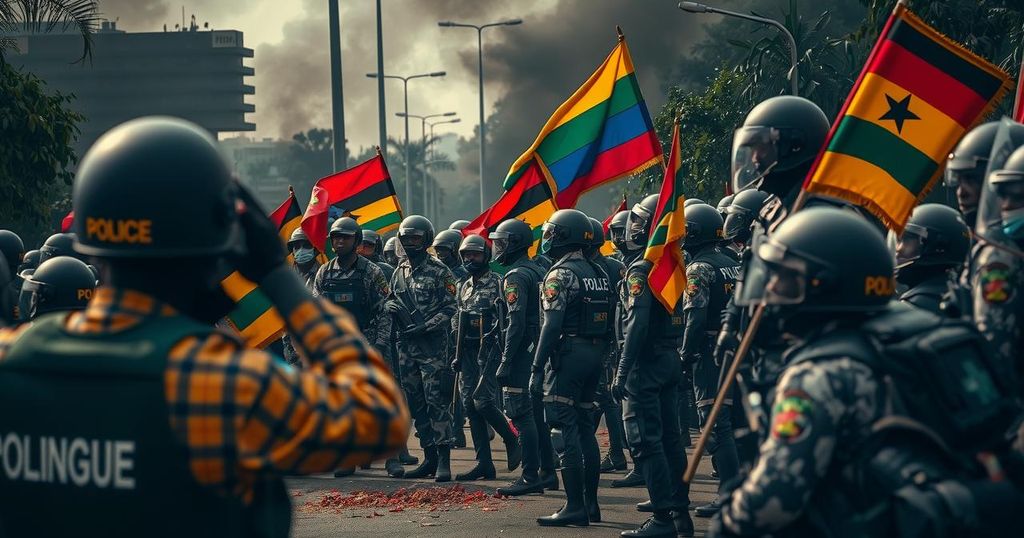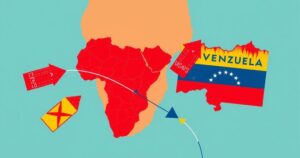Mozambique’s Post-Election Unrest: Protests Erupt Amid Accusations of Fraud

Protests in Mozambique ensued following the Oct. 9, 2024 election, which extended the ruling Frelimo party’s authority by accusations of electoral fraud. Demonstrations have been violently suppressed by police, resulting in numerous fatalities and significant unrest, spurring reactions from neighboring countries such as South Africa as tensions continue to rise.
In Mozambique, widespread protests erupted following the October 9, 2024, presidential election, which resulted in the ruling Frelimo party extending its long-standing authority. The ruling party, which has governed since Mozambique’s independence in 1975, faced considerable accusations of electoral fraud, prompting significant unrest. The protests escalated with police employing tear gas and rubber bullets in response to demonstrators, who contested the election outcomes, leading to a violent crackdown that has reportedly resulted in numerous casualties as they have rejected the election results and demanded accountability. The unrest began after Daniel Chapo, the candidate from the ruling Frelimo party, was declared the victor on October 24. Opposition parties and citizens alike have accused Frelimo of ballot manipulation and voter suppression tactics as reports emerged about discrepancies during the vote count. It has been highlighted by international observers, including the European Union, that irregularities marred the electoral process, undermining public confidence in the legitimacy of the results. As protests continued, the situation escalated dramatically, with at least twenty deaths attributed to police actions, according to international rights groups, while local sources report higher death tolls surpassing fifty. The Mozambican government has threatened military intervention to quell the unrest, which has exploded into violent demonstrations where protesters have set fires in the streets and taken drastic measures against government offices. The political landscape is further complicated by the assassinations of two senior opposition figures shortly after the elections, exacerbating the already heightened tensions. These events have led to fears among opposition leader Venancio Mondlane, who has since gone into hiding following threats to his safety. Meanwhile, Congress has observed a history of civil unrest in the country, a legacy of its previously brutal civil war, and chronic issues arising from a struggling economy. The authorities have largely dismissed the unrest as violent, refusing to release casualty figures and beyond heavy police presence, offering minimal engagement with public demands. Amid this turmoil, South Africa has closed its border with Mozambique, signifying wider regional implications in response to the violence affecting trade and safety along shared borders. As calls for further protests grow, the stability of Mozambique hangs in the balance amidst a dire need for governmental accountability and reform to address the historical grievances of its populace.
Mozambique has been grappling with political unrest and civil strife since its independence from Portuguese colonial rule in 1975. The ruling Frelimo party has faced longstanding accusations of electoral fraud and authoritarian practices, which are now at the forefront of public scrutiny. The violence following the recent elections echoes historical tensions reminiscent of the country’s civil war period, which has left an indelible mark on its political system and public trust.
In conclusion, the violent aftermath of the recent elections in Mozambique reflects deep-seated political unrest fueled by perceived electoral fraud and governmental oppression. As protests continue and calls for accountability intensify, the implications of these events extend beyond Mozambique, affecting regional stability and highlighting the complexities of governance in a post-colonial context. Urgent dialogue and reform are essential to address the grievances of the Mozambican people and to restore faith in the democratic process.
Original Source: apnews.com








